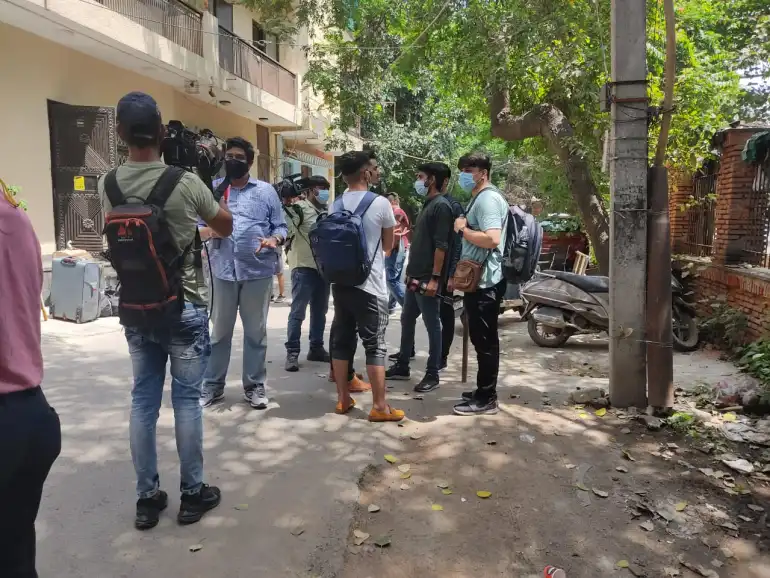“India’s feelings for Afghans, nobody can doubt,” said Indian Minister of External Affairs S. Jaishankar, in response to a question on the cancellation of visas for Afghan students pursuing their education in India. Attributing the indecision to the circumstances about the closure of the Indian Embassy in Afghanistan when the Taliban took over the country in August last year, the Minister did not appear to offer much clarity on the subject. With Afghan students caught in limbo for predicaments beyond their control, the sentimental assertion warrants comprehension of the chain of events and the kind of verbosity that often serves as a political deflection.
Indian Evacuation From Afghanistan
On August 16 last year, a C-17 flight with 40 diplomats and other personnel, was followed by another the next day with 140 remaining Indians onboard bringing them back home to India.
The evacuation of its diplomatic staff implied the momentary cessation of the Indian diplomatic mission in Afghanistan.
The missions in Jalalabad and Herat had already been closed the previous year, while Indian consulates in Kandahar and Mazar-e-Sharif in July 2021. Although a contingency plan had been put in place for the safe rescue of its citizens in case of any eventuality, the ensuing chaos after the Taliban takeover of Kabul landed the Indian government in a state of uncertainty as to the future of its bilateral relations with Afghanistan.
Nevertheless, it is significant to recall that as early as August 12, the official spokesperson for the Indian Ministry of External Affairs (MEA), Arindam Bagchi, in a media interaction had clearly expressed a preference for the safety of Hindu and Sikh minority community in Afghanistan, “We have facilitated the return of a large number of members of the Hindu and Sikh communities last year. Our mission continues to remain in touch with them and we will ensure the provision of all necessary assistance to them.”
Conspicuously though, he declined to specify if the same welcome would be accorded by India to Afghan refugees willing to depart the country owing to the Taliban’s resurgence to power.
Invalidation of Visas
India soon canceled all formerly issued visas to Afghan nationals who were then not present in the country and asked them to travel to India only on an electronic visa (e-Visa). The government, at that juncture, cited reports, indicating that some passports of Afghan nationals had been misplaced, as the rationale behind the decision to revoke the visas with immediate effect.
“We had a situation where we had to pull out our embassy, we did not even have a presence on the ground to verify what is what. At that time there was lot of uncertainty about whose passport was whose, whose visa was whose…these are real issues out there,”, said Jaishankar reminiscing about the time. Noteworthy herein is the fact that only around 200 Afghan nationals, particularly, Hindus and Sikhs, were given this visa till December 2021.
Since the Reopening of the Indian Embassy
Ten months after the closure of its embassy, the Indian government, in June 2022, this year sent a technical team of officials to be installed in its Kabul embassy as a substantial step towards engagement with the IEA.
As per the announcement of the Indian MEA, the decision was taken in view of closely evaluating and coordinating the endeavors of various stakeholders for the effective delivery of humanitarian assistance and “in continuation of our engagement with the Afghan people.”. Furthermore, India’s “historical and civilizational relationship with the Afghan people” was also mentioned as a motive. The move to reopen the embassy came barely a week after the Islamic State–Khorasan Province (ISKP), claimed responsibility for the terror attack on Gurdwara Karte Parwan in Kabul’s Bagh-e Bala neighborhood in Afghanistan.
Until now, the emergency visas have facilitated the arrival of 300 Afghan nationals in India, largely Hindu and Sikh beleaguered minorities, while 2,500 Afghan students enrolled across various Indian universities still await the approval of their visas in order to return and continue their studies. As a matter of fact, the students have been stranded since their return to Afghanistan after institutions closed down due to the outbreak of the COVID pandemic. They have registered a formal protest in front of the Indian Embassy in Kabul recently on September 28, lamenting inaction and appealing yet another time for visas to be issued.
On the other hand, Afghan students in India who have not visited home and are anxious that they will not be allowed to return to complete their education also continue to implore their case.
Afghanistan’s Ambassador to India Farid Mamundzay, who represents the former Afghanistan Republic, too expressed his dissatisfaction by asserting that no “convincing reason” thus far had been provided despite repeated appeals. Moreover, along with the emphasis on the “need for flexibility in visa regime,” he also highlighted that none of the Afghan citizens had ever been implicated in any major terror attack in another country, therefore the students must not be needlessly suspected on security grounds.
Linkages in Question
Despite public pledges of historical and civilizational linkages with the Afghan people, as well as the humanitarian and development assistance provided to the country, circumlocution looms large in Indian policies towards Afghans. Previously ineligible for obtaining E-visas because the country was placed under the Prior Reference Category (PRC), Afghan nationals accordingly needed clearance from the Ministry of Home Affairs if traveling to India. Others included in the category are nationals of Pakistan, Iraq, and Sudan; as well as foreigners of Pakistani origin, and stateless persons.
In stark contrast to the students in anticipation of their visas, a special flight carrying 55 Afghan Hindus and Sikhs landed in New Delhi this week, conceivably in the essence of the Citizenship Amendment Act (CAA) that sought to give priority to persecuted religious minorities from Pakistan, Afghanistan, and Bangladesh in acquiring Indian citizenship.
Ultimately, the least of all India owes is transparency to an estimated 14,000 Afghan students currently speculated to be in the country. Visa priorities right now and since August last year only call for the question as to whether transnational connections are relatively stronger for some communities than others, and perhaps if doubts can be cast after all on India’s feelings for Afghans.
The views expressed in this article are the author’s own. They do not necessarily reflect the editorial policy of the South Asia Times.







